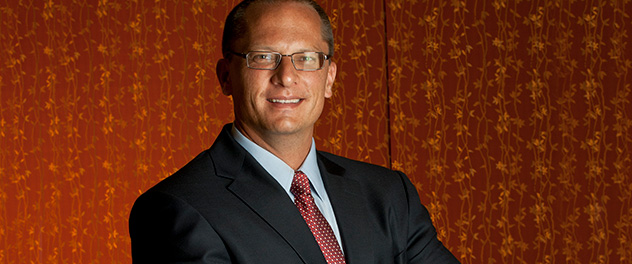 Disrupting cancer development where it begins
Disrupting cancer development where it begins
Our lab's goal is to identify the earliest stages of cancer development so that we can stop these processes and ultimately advance new treatment approaches, with a focus on breast cancer and lung cancer.
Overview
Led by principal investigator Derek C. Radisky, Ph.D., the Tumor Microenvironment Laboratory at Mayo Clinic is investigating the microenvironmental signals involved in the earliest stages of cancer development and working to define methods to target these processes. By focusing on cancer biology, our ultimate goal is to help prevent cancer development.
The tumor microenvironment — the cellular environment in which a tumor exists — contains an abundance of information. This information includes localized signals from adjacent cells and the surrounding extracellular matrix, along with soluble molecules, such as hormones and growth factors. Collectively, these signals constitute the tissue context. The behavior of every cell is influenced by the specific combination of signals presented to it.
Normal cells respond to these signals by organizing into structures that serve the body, filtering the blood in the kidney, digesting and internalizing nutrients in the intestine, and producing milk in the breast.
Cancer cells react to their tissue context differently. Cancer cells continue to grow and proliferate when they shouldn't. They cease their productive functions, and they take on dangerous new properties. And they metastasize, separating from the surrounding cells and disseminating to distant locations in the body.
Most existing cancer therapies target the consequences of the tumor cell genetic mutations, but these are limited by the ability of the tumor cells to develop drug resistance. Our Tumor Microenvironment Lab is zeroing in on the earliest stages of cancer development.
We're identifying specific steps associated with the malignant transformation of matrix metalloproteinases in breast cancer, using transcriptional profiling to pinpoint features of benign breast disease that are associated with progression to invasive cancer, studying how myofibroblast transdifferentiation affects the tumor microenvironment, and defining the molecular mechanisms behind lung cancer. Our goal is to disrupt the development of cancer and to advance novel therapeutics.
About Dr. Radisky
Dr. Radisky is a cancer biology researcher at Mayo Clinic in Jacksonville, Florida. He is also a professor of cancer biology at Mayo Clinic College of Medicine and Science. As a researcher, he investigates how cancer develops, with a focus on breast cancer and lung cancer. Dr. Radisky hopes that learning more about the biology of cancer can help disrupt or reverse cancer development and lead to improvements in the arsenal of targeted therapies.